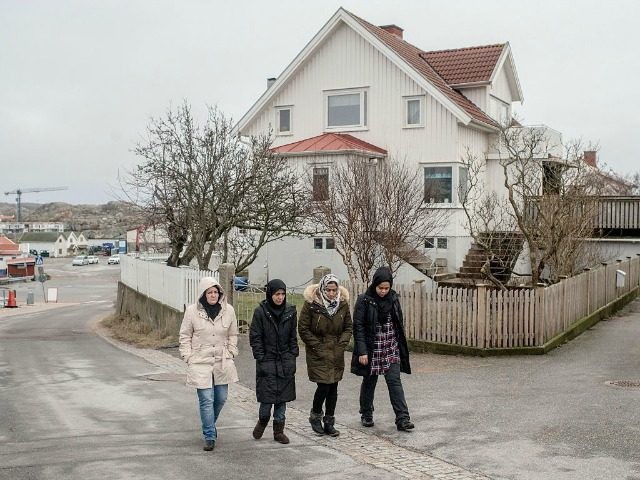Researchers are urging the European Union (EU) roll out the red carpet for migrants, complaining that many who are here now want to flee the bloc’s “appalling conditions”. They lament that a number of migrants in Turkey, who wanted to reach Europe, have chosen to remain there instead.
Researchers looking at migration to Europe through the Mediterranean route claim that migrants are now wanting to “flee” the continent due to “appalling conditions” and that migrants in Turkey no longer want to continue on to EU nations.
Vicki Squire reports that the research team “heard various stories of people suggesting that they are considering returning to conditions of conflict, violence or repression rather than remaining stuck in disastrous conditions in Europe”.
“People repeatedly tell us that the safety and rights they were expecting to find in Europe are lacking” Dr. Squire, who is the project’s lead researcher, writes.
Dr. Squire claims that along with the EU-Turkey migrant deal, EU countries’ failure to provide desirable living standards to migrants, and jobs amounts to a “deterrent agenda”. This “deterrent”, their research found, meant that many people in Turkey who had wanted to to come to Europe have instead chosen to build a life there.
The academic condemns this approach, contending that migrants who stay in Turkey to build a life remain in the “dire” position of “working long hours of work with little pay”.
Migrants in Turkey, according to researchers, “often experience further violence, conflict, repression and poverty” there. This is because, Dr. Squire writes, “many people arriving are either unable to find work, or face labour exploitation due to their precarious irregular or temporary status”.
One example given by Dr. Squire is that of Afghan Akbar [chosen name], who is living in Istanbul. Dr. Squire reports that Akbar tried, unsuccessfully, a number of times to get to Europe. After one of his friends, who had made it to Sweden, called Akbar to say he wished he’d stayed in Istanbul Akbar decided to remain and “make the most” of his life there.
Dr. Squire writes: “But what about Akbar’s decision to stay and make a life in Istanbul? Does this suggest that deterrence may be working to prevent so-called ‘illegal migration’ in the ways that some policy-makers hope it can?
“Certainly, Akbar explained to us that he is now striving to build a life for himself in Istanbul in a way that some of his friends are telling him is not possible in Europe.”
The academic argues that the EU’s failure to satisfy migrants with what they consider adequate standards of living is “devastating”, as in Turkey Akbar is still “working long hours of work with little pay”.
She continues: “Surely when people start to consider escaping Europe in order to return to these conditions or conflict zones such as Syria, a deterrent approach must be questioned?”
The Reader of International Security concludes that Europe must draw up a new agenda on migration, one which “needs to be grounded in an appreciation of each person’s inherent potential rather than in a drive to deter ‘unwanted’ people”.
The University of Warwick project received an Urgency Grant from the UK’s largest research agency, to produce “a timely and robust evidence base as grounds for informing policy interventions”. Its website states that the project “undertakes such an assessment by engaging the journeys and experiences of people migrating”.

COMMENTS
Please let us know if you're having issues with commenting.